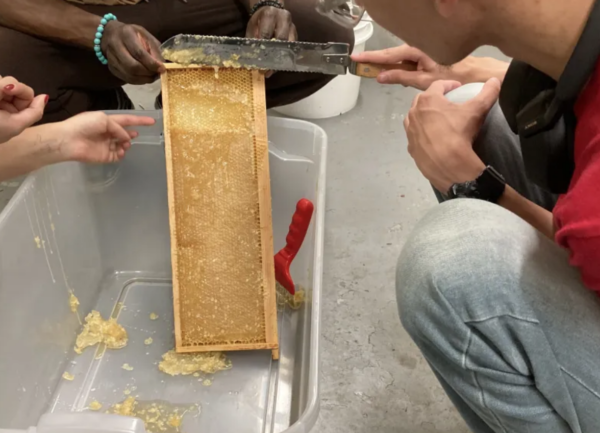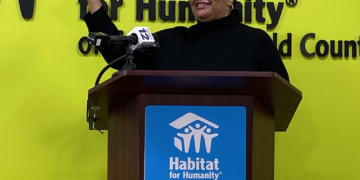There”™s a buzz on the campus of the State University of New York”™s Purchase College about a new course being taught by Assistant Professor of Biology Stephen Harris and Lisa Jean Moore. Moore specializes in sociology and gender studies. It”™s course number LBS3032, “The Buzz About Bees.”
As the SUNY Purchase course listing described it, “Students learn about beekeeping, the honey bees”™ importance to biodiversity, and the relationship between honey bees and humans. In addition, beehives on the college campus allow the students to learn practical things such as how to extract honey from honeycombs. Bees are instrumental to the preservation of biodiversity and ecological balance.”
SUNY noted that together with other insects, the bees pollinate close to three quarters of the plants that produce 90% of food worldwide.
“Students learn about these indispensable creatures from biological, ecological, and sociological perspectives, examining the interspecies relationships surrounding their labor. Coursework includes fieldwork at our campus honey bee hives,” SUNY said.
Moore instructs the students about the social and cultural meaning of bees by delving into sociology, anthropology, literature, and film. Harris has focused on the biology of honey bees.

“I have always promoted the idea of democratizing science and have worked around the world to bring molecular biology to students not usually exposed to these ideas,” Harris said. “That is why I was so excited to teach the biology of honey bees to non-science liberal studies majors, allowing them to get some of these hands-on experiences of beekeeping, DNA extractions, and molecular biology.”
Frames from the hives are brought into the Natural Sciences Building at SUNY Purchase where students use special combs to open cells and extract the honey.
Students in The Buzz about Bees course learn that the western honey bee is just one of about 20,000 bee species and it”™s important to protect all pollinating bees. The western honey bee, the most common species in the U.S., was native to Africa and Europe before spreading around the world. By analyzing DNA contained in the honey it”™s possible to determine which plants the bees have been visiting.
Harris”™s research investigates whether urban and rural honey bees are influenced by urbanization, measured by the diversity of plants the bees visit.
SUNY Purchase is not the only institution of higher education to offer a course in bees. In fact, the organization Xerces Society for Invertebrate Conservation has been promoting such educational efforts through its Bee Campus USA program, which now has 152 affiliates. The affiliates include SUNY in Farmingdale, Cortland, New Paltz and Binghamton, Vassar College in Poughkeepsie and Pace University in Pleasantville. The program not only encourages education about bees, but also encourages colleges to make their campuses more attractive for the pollinators.





















